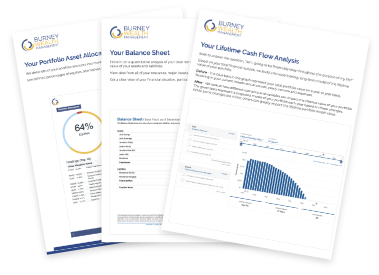The Stock Market Doesn’t Always Make Sense: Here’s Why

The stock market is often erratic in the way it moves, contrary to what many people think will happen or how the market should react. Oftentimes when the market doesn’t make sense, it is right anyways. It’s easy to think of the stock market and the economy as intertwined, but that is not always the case. Largely speaking, the stock market can be measured by the S&P 1500 (or S&P 500) while the economy is measured by Gross Domestic Product (GDP). The chart below from the CFA Institute shows the S&P 500 performance compared to U.S. real GDP from 2002 to 2022.
The chart demonstrates that there is some correlation between the two, but they don’t always move in tandem. Market volatility and investor sentiment make it possible for stock prices to fall in times of economic prosperity and rise in times of an economic downturn.
Example 1: Reaction to Covid-19
In March of 2020 the stock market was sent into a spiral downward bottoming on March 23, because of the surge in Covid-19 infections and fear spreading fast throughout the U.S. As the world seamlessly shut down overnight, the stock market felt differently. Now we have the benefit of hindsight when analyzing what happened in 2020 but at the time it seemed impossible that the market could turn around in the context of extended lockdowns and the complete disruption of the normal way of life. Despite this, the stock market rallied for the remainder of the year with the S&P 500 ending the year up over 16%.
Example 2: The Current Market Environment
What is similar to the Covid-19 situation in March of 2020 is the stock market now, but rather than an unforeseen pandemic, the issue is inflation. Inflation has been the talk of the town for the past year with the CPI peaking at 9.1% in June 2022 from just 1.4% in January 2021. In an effort to bring down inflation, the Federal Open Market Committee (FOMC) raised interest rates to over 5% starting in March 2022. With interest rates rising rapidly and inflation sky high, Steve Hanke, a professor of applied economics at Johns Hopkins University, predicted an 80% chance of the U.S. falling into a recession. Contrasting to the present, many economists are brushing off the chances of a recession and turning to a more optimistic viewpoint. Goldman Sachs estimates a 25% chance of an economic drawdown. While 2022 was not a great year for the stock market, the S&P 1500 is up over 16.5% YTD in 2023, brushing off inflation and high interest rates. Today, many economists and investors project a positive viewpoint on the markets because of the optimism of the future.
Why is The Stock Market Doing Well Despite Unfavorable Macroeconomic Conditions?
The primary idea behind the Stock market is that it is a forward-looking machine, meaning the market’s activity in the present is being affected by what investors believe will happen in the future. More or less, what is important is not what is happening in the present but what is likely to be happening in the future. It is easy to get caught up in the current economic environment but it’s essential to remember what is happening right now likely isn’t driving stock market returns. The strong performance of the stock market in 2023 despite not so good economic conditions can be drawn as a result of the increased chance of a soft landing, or an increased positive economic outlook. The market is looking ahead and gauging whether there will be a recession rather than being held up in the present concerns of unemployment, inflation, and high interest rates. The market considers all available information, and rapidly changes to account for the new information that is constantly being released.
The Burney Company is an SEC-registered investment adviser. Burney Wealth Management is a division of the Burney Company. Registration with the SEC or any state securities authority does not imply that Burney Company or any of its principals or employees possesses a particular level of skill or training in the investment advisory business or any other business. Burney Company does not provide legal, tax, or accounting advice, but offers it through third parties. Before making any financial decisions, clients should consult their legal and/or tax advisors.




